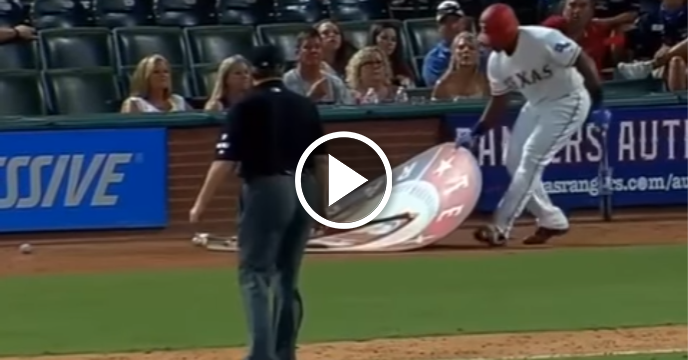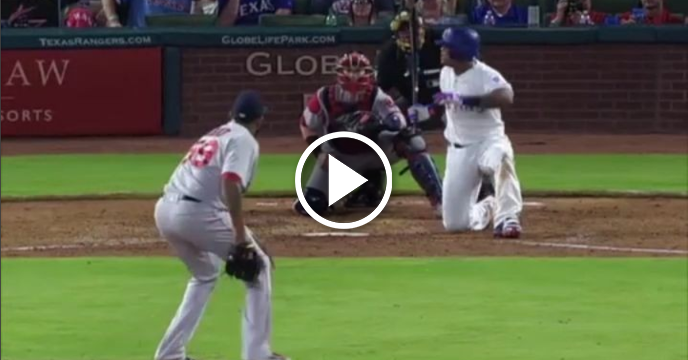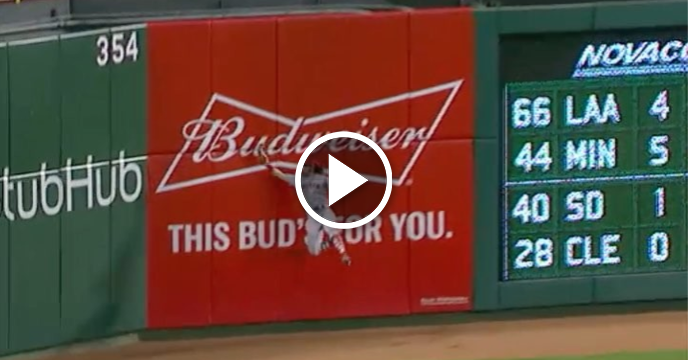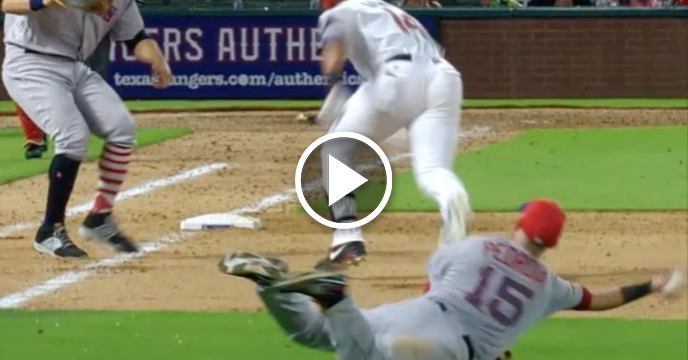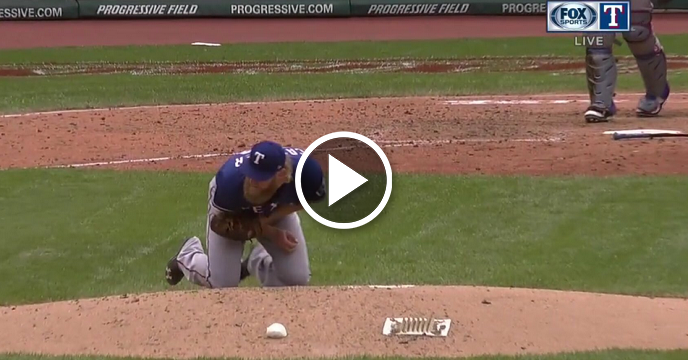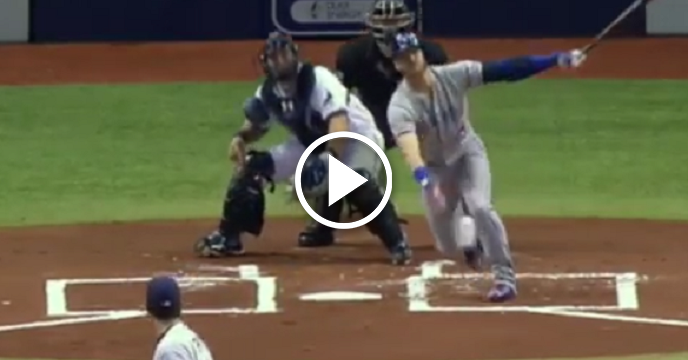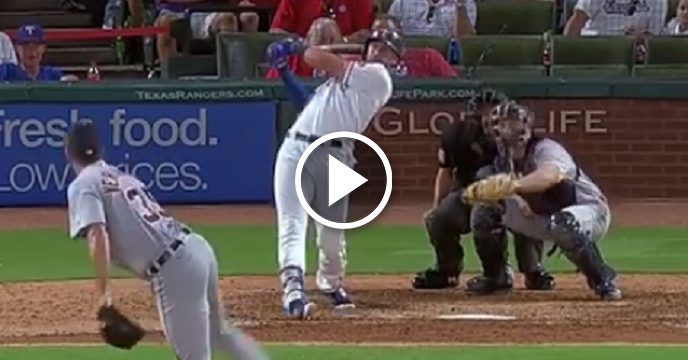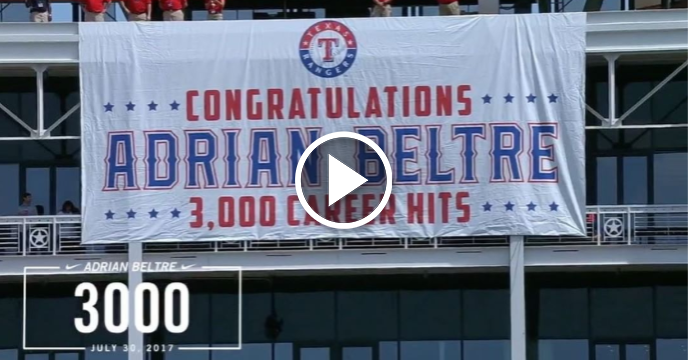
The Dr. Jekyll/Mr. Hyde routine continued for Derek Holland on Monday night in Arlington. In an important start against the Oakland Athletics, Holland could only record nine outs before being removed, but not until he had given up three runs on two home runs, and put the Texas Rangers in an early 3-1 hole. The Rangers would eventually win the game in a 5-4 walk-off victory, thanks to Adrian Beltre, and six innings of one-run ball pitched by the Rangers’ bullpen.
It had seemed Holland had turned a corner in his 2012 season coming into tonight’s game. In his first 18 starts of the season, Holland had a ballooned 5.18 ERA. Since then, he had made eight starts with an ERA of 2.93. After tonight, Holland’s season ERA is 4.50, slightly worse than the 4.38 ERA average for American League starting pitchers in 2012.
Starts like Monday night bring up the question that has seemed to be without answer for the last four years: What is Derek Holland? He has showed that he has the ceiling of a good #2 pitcher in a starting rotation, but over the course of a season only seems capable of delivering the results of a #4. In his career 559.2 innings pitched, Holland has a 4.66 ERA. He has had a handful of outstanding starts sprinkled in here and there, but overall his MLB career has been a struggle for the almost 26-year old lefty.
There is enough of a body of work that there is an argument to be made that Holland will never reach his ceiling, and that at this point who he is now is who he always will be. However, I am still holding out hope that Holland can reach his ceiling one day, although it may not be in the very near future.
The mental aspect of competing at the professional sports level is a perspective that almost no observers are able to grasp. It’s an intangible, but according to those who have actually played the game it is a crucial element to a player’s success on the field.
During the first four years of his career, Holland has not displayed a high level of mental prowess. His struggles to stay focused and finish at-bats once there are two strikes on a hitter, or finish innings once there are two outs have been well-documented and publicized. During some starts, Holland has benefitted greatly from Ron Washington making a special visit to the mound or giving a slap in the face just to get his pitcher re-focused on the task at hand. That kind of treatment is specific to Holland, whose biggest enemy is his own cerebral strength.
Despite mental fortitude continuing to be a struggle for Holland, there has been growth and maturity to this point in his career, even if it hasn’t yet translated to consistent on-field success. After Monday’s start, Richard Durrett of ESPN Dallas reported the following:
“I pitched behind and I wasn’t executing my pitches,” Holland said. “So you can’t expect to win a ball game doing that. I’m putting my defense on their heels because I’m not throwing the ball where it needs to be or executing my pitches.”
Holland said he’ll allow himself to be frustrated Monday night and then will move on beginning Tuesday so he can get ready for his next start this weekend against the Los Angeles Angels.
When those bad outings happen, that’s the kind of response that I want to see out of that pitcher. He is recognizing his mistakes, taking ownership for them, acknowledging that he is bothered by the results of the game, but is going to move on and be better next time out.
This could just be wishful thinking on my part, but considering where Holland was four years ago, he does seem to be on the right track. He may just be moving a little slower down that track than usual compared to those pitchers that reach their ceilings as a #2 type of pitcher. The slow-movers are not without their success stories, however.
Cliff Lee was not the pitcher he is today until he was 29 years old and had pitched 741 MLB innings. Brandon McCarthy never gained traction as a reliable starting pitcher until he was 27 years old and had been in the league five seasons.
Holland will turn 26 years old in just a couple of weeks. At some point, he will be out of time, and even optimists like me will no longer be able to say that he’ll figure it out one day. But just because he may not have it all figured out in his next start, or the one after that, it doesn’t mean he’ll never figure it out. For single starts, or small stretches of his career, Holland has showed the kind of dominant pitcher he can be when he is executing his game plan.
It’s impossible to know if he’ll actually ever reach that point in his career. However, if he can continue to mature and grow and refine the non-physical aspects of the game, he will be a force to be reckoned with, and the patience of those who continue to show belief in him (like the Rangers organization) will be validated.
Join in the conversation with Peter on Twitter by following him @FutureGM
 Share
Share 


